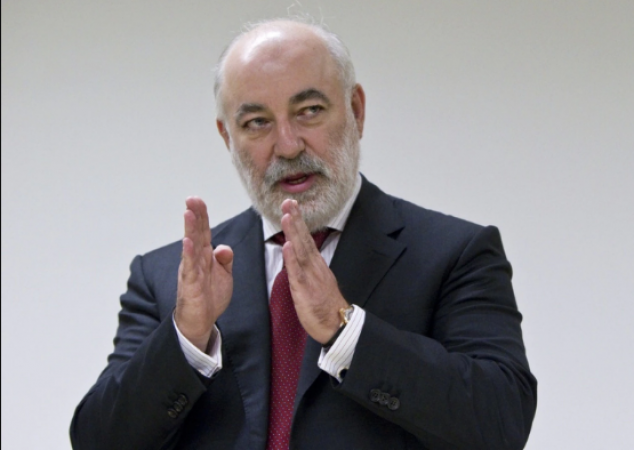
Washington: In order to stop the Kremlin's invasion of Ukraine, the US has launched an aggressive new campaign to hurt Russia's economy, particularly its oligarchs.
US officials from the Treasury Department to the Justice Department will concentrate on initiatives to formally liquidate the assets of Russian oligarchs, increase the financial penalties for those who aid in sanction evasion, and close legal loopholes that permit oligarchs to use shell companies to transact in the US financial system.
The Associated Press was informed by Andrew Adams, the head of the US government's KleptoCapture task force, that the group is prioritising its efforts to identify those who assist Russians in evading sanctions. The task force was established to enforce the economic restrictions placed on Russia and its billionaires within the US.
Also Read: WTC Final: India's run in second cycle help qualify for summit clash
Adams, who also holds the position of acting deputy assistant solicitor general, predicted that these illegal procurement networks would continue to consume a growing portion of our bandwidth.
According to a report released last week by the Treasury Department, sanctions against Russians have so far resulted in the blocking or freezing of assets totaling more than $58 billion worldwide. This includes six properties in New York and Florida worth $75 million that are owned by sanctioned oligarch Viktor Vekselberg and two luxury yachts worth $300 million each in San Diego and Fiji.
The US has started making efforts to punish oligarchs' associates and wealth managers; in the case of Vekselberg, a federal court in New York indicted Vladimir Voronchenko after he assisted with the upkeep of Vekselberg's properties. In February, he was accused of planning to violate and evade US sanctions
The KleptoCapture group managed the case's coordination.
Adams referred to them as "professional sanctions evasion brokers" and said, "I think it can be quite effective to be sanctioning facilitators."
Also Read: India qualifies for WTC Final, win Border-Gavaskar Trophy for 4th time
According to a study published in February and led by researchers at Dartmouth University, targeting a few important wealth managers would harm Russia much more than sanctioning oligarchs one at a time.
The Kremlin and Russian oligarchs' efforts to sell off their yachts and other assets in order to raise money for Ukraine will be another attempt to hurt the Russian economy.
Volodymyr Zelensky, the president of Ukraine, has long called for the transfer of Russian assets to Ukraine, and Daleep Singh, a former official in the Biden administration, said on February 28 before the Senate Banking Committee that forfeiting Russia's billions in US assets is "something we ought to pursue."
"Use the reserves that we have immobilised at the New York Fed, transfer them to Ukraine, and let them put them up as collateral to raise money," Singh suggested the US do. As national security adviser for international economics, he oversaw the White House's sanctions against Russia.
Adams claimed that despite the legal challenges involved in turning property whose owners' access has been restricted into forfeited assets that the government can take and sell for the benefit of Ukraine, the KleptoCapture task force is continuing its efforts to sell Russians' yachts and other property.
He emphasised that the rule of law would govern US operations. Part of what that entails, according to Adams, is that we won't start seizing property without a valid reason if it hasn't been completely forfeited through legal channels.
The task force has "successfully worked with Congress and worked with people around the executive branch in obtaining authorization to transfer certain forfeited funds to the State Department," the official continued.
The government is "paving the way," according to the Treasury Department, for $5.4 million in seized funds to be sent to Ukraine as foreign aid. A priority across all federal departments will be closing legal loopholes that allow people to violate sanctions, according to officials.
In order to address the use of the US real estate market to launder money, Treasury's Financial Crimes Enforcement Network is anticipated to release regulations that include a requirement on disclosing the true ownership of real estate.
The Yale Chief Executive Leadership Institute's director of research, Steven Tian, who monitors businesses' withdrawal from Russia, believes the new real estate rule is long overdue.
"I'd like to point out that it's not just a phenomenon among Russian oligarchs. As you are aware, the US real estate market consistently uses shell companies, according to Tian.
In late March, when the United States will co-host the second Summit for Democracy with the governments of Costa Rica, the Netherlands, South Korea, and Zambia, Erica Hanichak, the director of government affairs at the nonprofit FACT Coalition, which advocates for corporate transparency, urged the administration to introduce the rule.
Also Read: Priests may not have to be celibate in future: Pope Francis
She said: "We see this as a chance for the United States to show leadership, not just in addressing corrupt practises abroad, but also looking to our own backyard and addressing the loopholes in our system that facilitate corruption internationally.